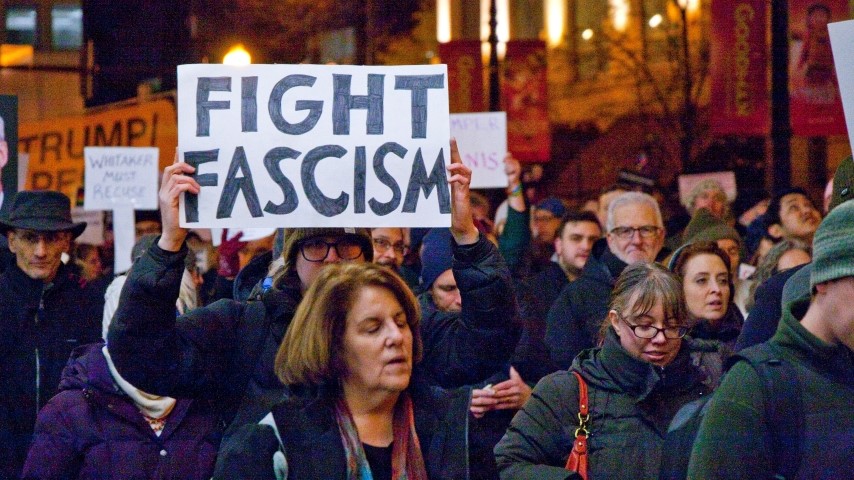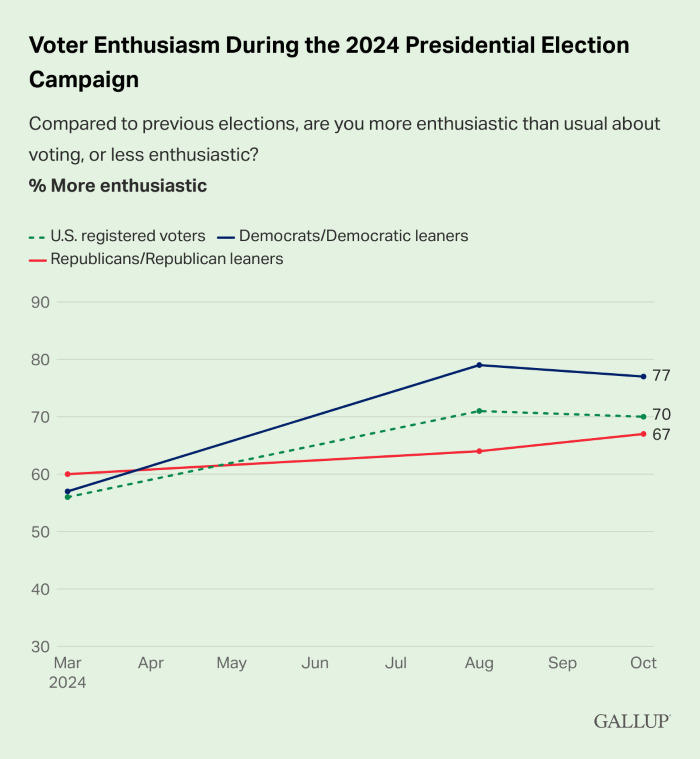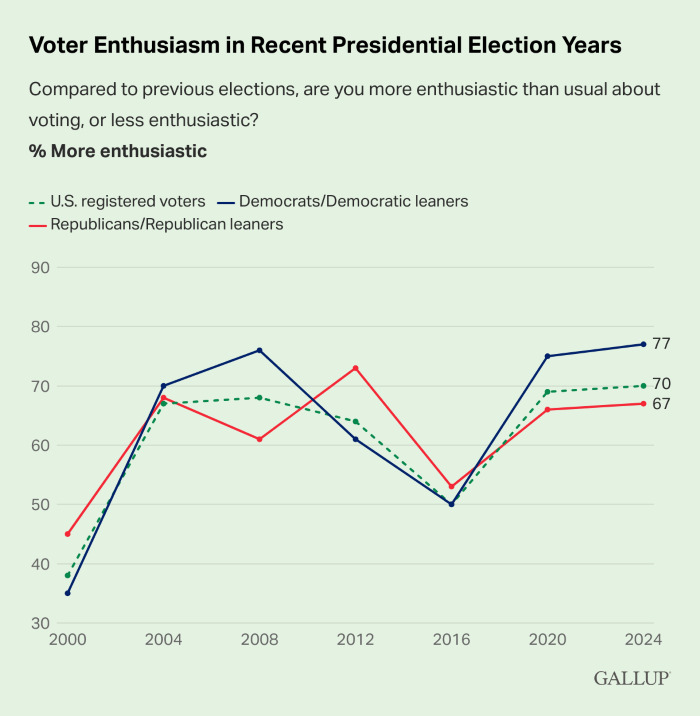Democrats Are More Excited to Vote than Republicans
Charles Edward Miller from Chicago, United States, CC BY-SA 2.0
We are in the tea leaves phase of the election cycle, where votes are being cast but we will not have the full picture until after election day, and so we are all slowly driving ourselves insane looking for clues as to how next week’s election may go. Depending on which state you look at, early voting in Nevada could be a harbinger of doom for Democrats as Republicans are heavily turning out the vote in rural areas en route to what looks like a victory in the Silver State, or you can look at the gender gap in the six states that track that data which suggest a Democratic blowout is incoming. Or maybe you’re just looking at Georgia and you have good news and bad news for everyone. The central problem with forecasting this election lies in the heavy influence of low propensity voters this year, as Trump is depending on definitionally inconsistent voters to win. Right now, we are in the sweet spot of having enough data to come up with almost any theory you want but not enough data to falsify it.
So let’s add some more data to the pile. Voter enthusiasm is one of the indicators that tea leaves readers turn to, as it is a pretty solid gauge of the expected turnout for each side. The logic is pretty simple: if voters are telling pollsters they are more enthusiastic about this election, they are likely to vote in it. The more voters who are enthusiastic, the more votes are cast. Democrats clearly have the enthusiasm advantage in this election, per the latest polling from Gallup.


One way to look at this chart is that every year this century except for Barack Obama’s second election, Republicans win when they are more enthusiastic to vote than the average of all registered voters. That election could serve as a comparable one to this year, as late polling indicated a Mitt Romney surge or even a victory, but that supposed shift in the electorate never materialized and Obama won handily.
Further providing hope to Democrats is that Gallup indicates they are more excited to vote this year than in 2008, the largest victory for either party since George H.W. Bush’s blowout win over Michael Dukakis in 1988. Additionally, 2008 and 2020, both Democratic victories, are the only elections this century with an enthusiasm gap between the two parties similar to this year’s ten point difference. If this polling translates directly to votes, the Democrats should win.